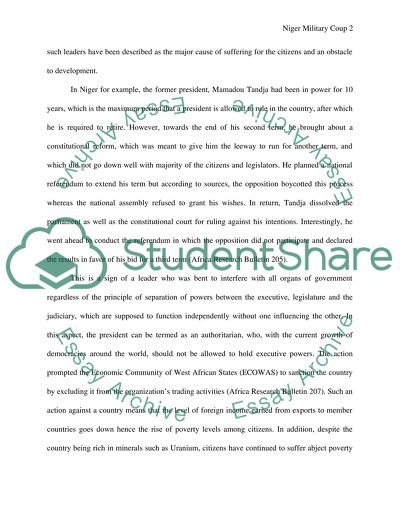Cite this document
(“NIGER MILITARY COUP Essay Example | Topics and Well Written Essays - 1500 words”, n.d.)
Retrieved from https://studentshare.org/environmental-studies/1406068-niger-military-coup
Retrieved from https://studentshare.org/environmental-studies/1406068-niger-military-coup
(NIGER MILITARY COUP Essay Example | Topics and Well Written Essays - 1500 Words)
https://studentshare.org/environmental-studies/1406068-niger-military-coup.
https://studentshare.org/environmental-studies/1406068-niger-military-coup.
“NIGER MILITARY COUP Essay Example | Topics and Well Written Essays - 1500 Words”, n.d. https://studentshare.org/environmental-studies/1406068-niger-military-coup.


